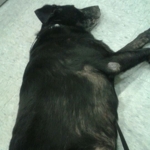
New Hope Veterinary Hospital
CLOSED NOW
Today: 2:00 pm - 6:00 pm
Tomorrow: 2:00 pm - 6:00 pm
 auto services
auto services beauty
beauty home services
home services insurance
insurance legal services
legal services medical services
medical services pet services
pet services restaurants
restaurants
New Hope Veterinary Medicine
New Hope Vet Hospital
Phone: (215) 862-2961
Address: 21 N Sugan Rd, New Hope, PA 18938